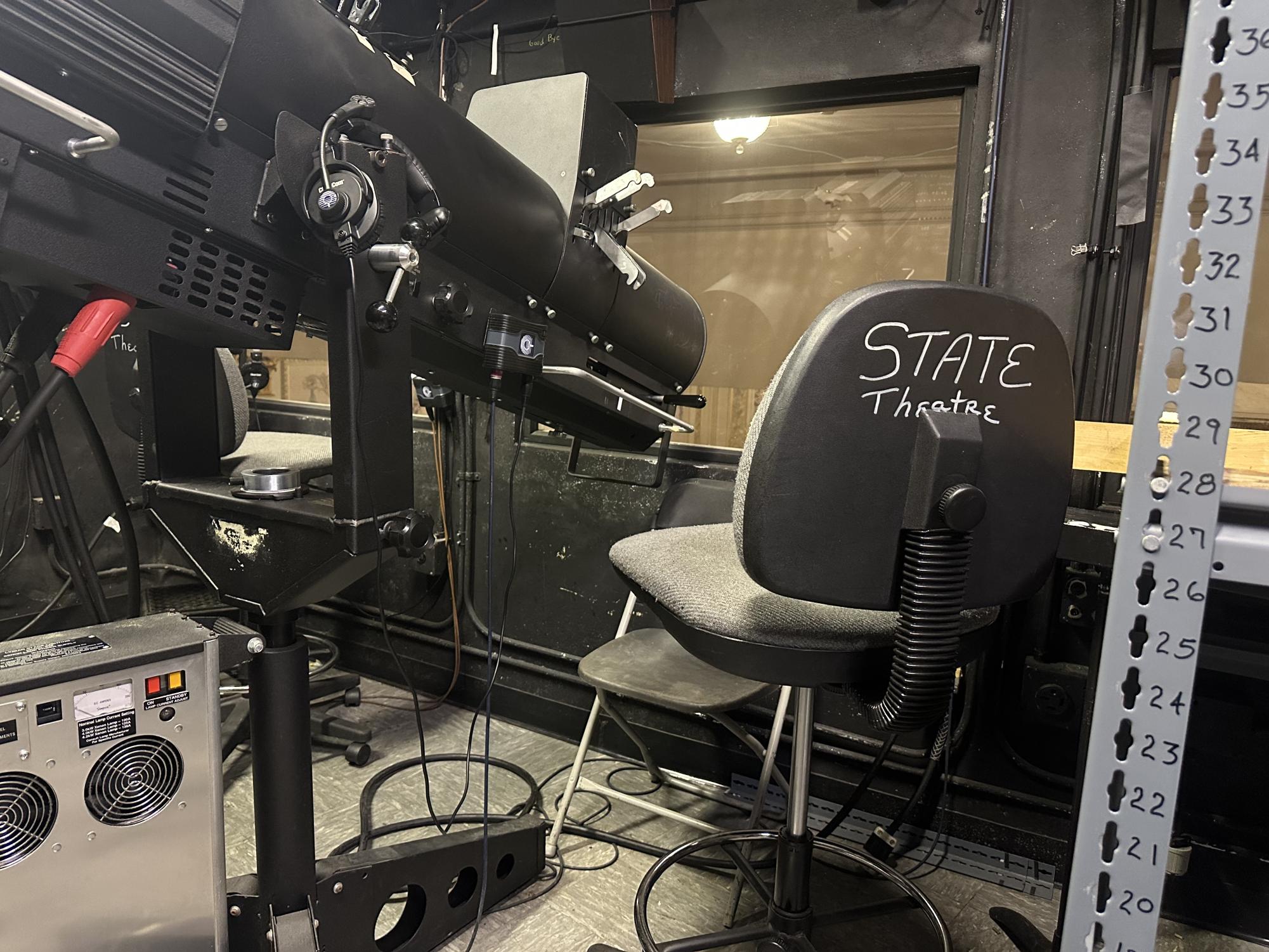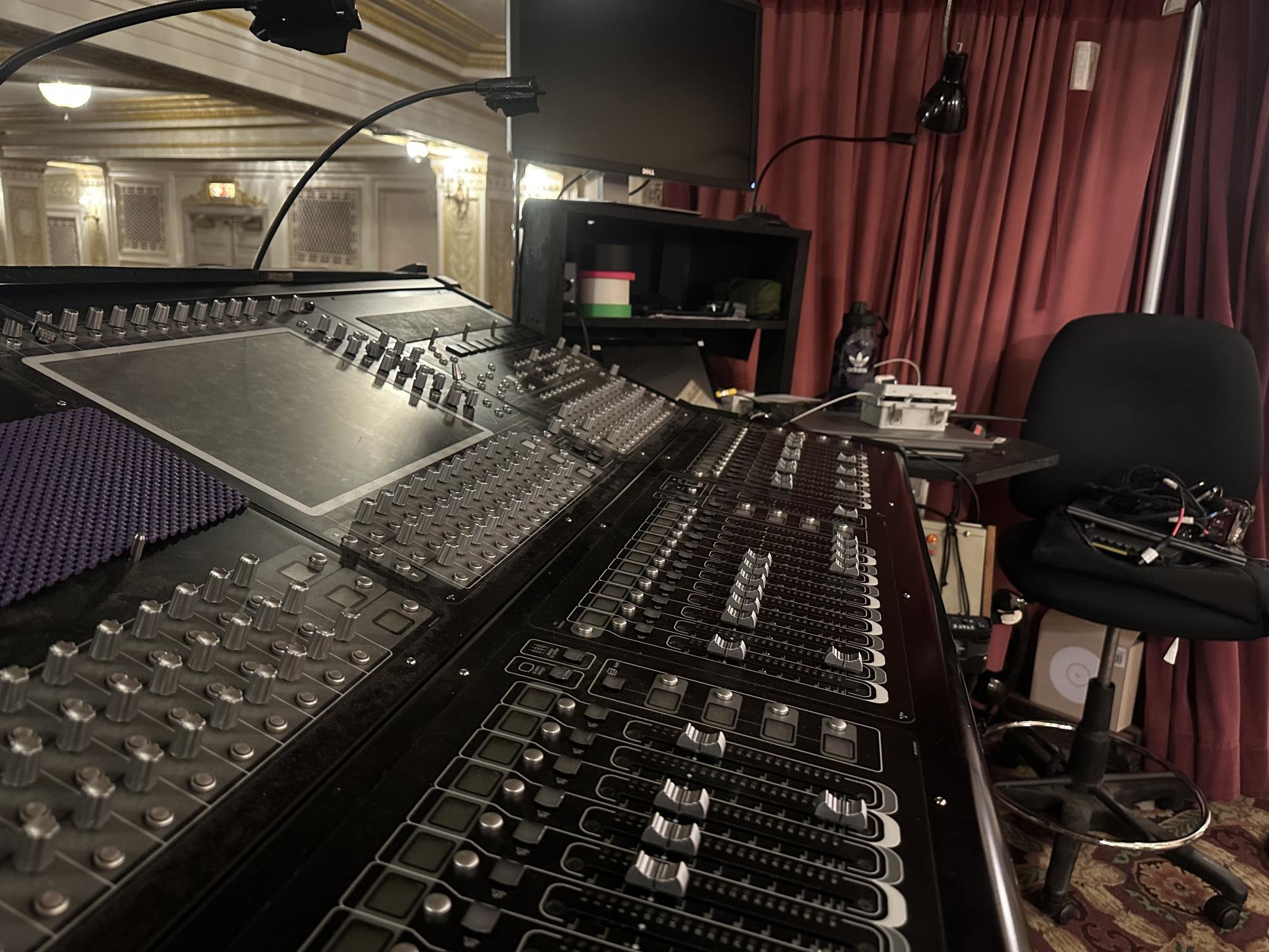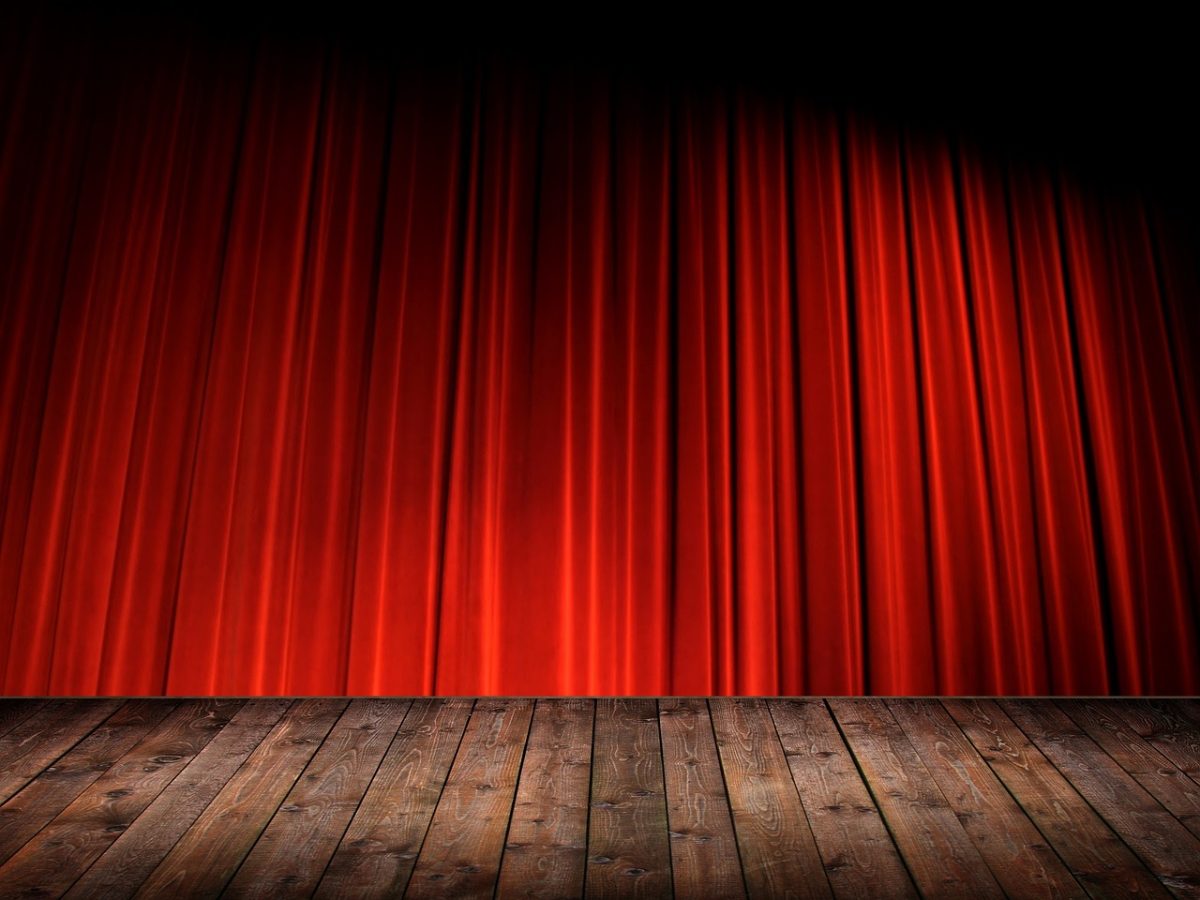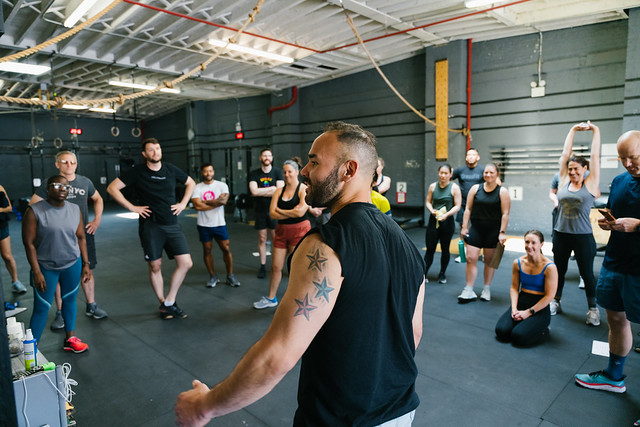Making Theatre Happen: The Backstage Perspective
The sounds of the audience begin to trickle into the theatre. The doors are open and the final countdown to the opening of the show has begun. Backstage, the air is filled with anticipation while everyone waits for the curtain to lift. The actors wait in the wings, ready to perform after weeks of preparation. But who else waits with them? Who else helped make this show come to life? Who are the people you don’t see and what do they do for the production?
There are many different jobs done behind the scenes of a show. These jobs differ from show to show, “but, the core elements are going to be carpentry, props, audio, lighting, wardrobe, hair, and makeup” says Jesse Carlson, the operations coordinator and technical director at The State Theatre in Minneapolis.
Weeks ago, before the audience even had their tickets, before rehearsals, production began with a vision. The first step of prod
uction is the design phase, when the designers meet with the director “to find out what their vision is of the show they’re doing” , explains Carlson. Then, it’s time to build. “We spend several weeks building the set while rehearsals are going on”, says Carlson. Once that’s wrapped up, it’s time for tech week.

During tech week, all these elements and the behind the scenes crew came together to make the show look great for the audience. Everyone learned to work together and communicate effectively to bring the creative vision to life. Without them, the performance wouldn’t be able to happen. Without them, “your actors are not seen nor heard. Nor clothed. Without them, there is no production”, says Carlson

Now, back in this moment, the show draws nearer. In the stillness of the booth sits the stage manager, the fearless leader, ready to run the show. They will tell everyone else what to do and when to do it. Next to them, the light board operator sits and waits patiently to take their cues and lead all the light changes throughout the show. Their work allows the atmosphere of the show to come to life. Elsewhere, in a darkened corner behind the audience, the sound board operator and the sound effects operator quietly await the beginning of the show. They will control everything the audience hears.
Whether it be microphones for the actors or the sound effect that tells us what’s going on throughout the show, they are in control of how everyone and everything sounds.
Backstage, another group of people also lie in wait to help create the magic of the show. The run crew will lead the backstage operations. They will move set pieces and stay in contact with the stage manager through a headset. The props crew has already organized the props backstage and has the system down to a T, they will make sure everything is where it needs to be when it needs to be there. And finally, the costume crew will help any actors with quick changes they may have during the show and help keep the costumes in good quality for the rest of the show’s run.
These people will not be seen. They will hide in the quiet darkness around the theatre and do their jobs. The audience will not think of them, nor of the work they do. They will appreciate the work without realizing it, without knowing of those who made this production what it is. The crew are the unsung heroes of the theatre world, and without them, the show wouldn’t go on.

Leadership Behind The Scenes: A Conversation With A Stage Manager
Stage managers are leaders among the theatre world. They bridge the gap between onstage and backstage, and during a performance, they run a show. But what does this mean for the people who do this work and why do they love it so much? To get further insight on this topic, I sat down and talked to Madeline Scott, a freelance stage manager located in Chicago who got her start right here in the Twin Cities.
Q: Who are you and what do you do?
A: My name is Madeline Scott. I’m currently an assistant company manager of a regional theatre in Chicago, but I’ve spent the past 10 years as a freelance stage manager.
Q: How did you get to where you are?
A (openly): I started out stage-managing shows at Minnetonka High School, then when it was time to go to college, I looked at schools that had theatre programs. So I went to Loyola University in Chicago and got a theatre Arts degree. As a student, I started assistant stage managing or assistant light designing and working at companies in Chicago and building those relationships. I graduated and I wanted to keep doing it, so I continued freelancing in stage management. I joined Actors Equity in 2021, and then I’ve been stage managing since.
Q: As a stage manager, what do you do on any given production?
A (pleasantly): Stage managers have a week of pre-production, which means that you’re on contract at the theatre doing paperwork. You’re getting organized, you have meetings with all of the different shops. You talk to the director about the rehearsal process. And then rehearsals start and stage managers are running the room. You’re calling breaks, you’re checking in at the top and end of the day with the director, making sure that they’ve got what they need. Answering actors’ questions, taking notes on all of the staging and blocking that happens. And then in tech rehearsals all the design elements are added, so the stage manager gets a list of lighting cues, sound cues, projection cues, sometimes automation cues, from various designers. And then during tech, they call the cues as well as running the room.
Q: What’s your favorite part of your job? Like what’s the part that you really love the most?
A (sincerely): I love the people. I stage manage because you get to work with every single person involved in the production.You’re talking to everyone on crew every day in tech, you’re working with all of the designers to help realize their visions for the show. You’re super close to the cast. Actors and stage managers are in the same union because they’re a team the whole time. I also love problem solving. The pressure if something is going wrong during a performance, do I stop the show, do I need to call a hold and stop the show in front of hundreds or thousands of people? Or are we safe to keep going?
Q: What would you say is the most rewarding part of the work you do behind the scenes of a production?
A: (with a smile): I love seeing the magic happen. Whether that is just like really pretty light cues, actors and all of the tech working perfectly in a moment, or whether that is something went wrong in the audience didn’t know because we kept going. And then watching audiences be moved by the power of theatre is one of my very favorite things. It’s really rewarding because I feel like what I did mattered.
Show Time: A Day In The Life of a Professional Stage Manager
Stage managers lead the backstage operations during any live performance. A typical show day will look slightly different for stage managers at different theatres. Not all performances start at the same time and not all stage managers will have the exact same schedule. However, on the whole, a day for any stage manager will look similar to that of any other. So what does that look like?
A stage manager’s day starts early, “pretty much as soon as I wake up”, says Chloe Volna-Rich, Production Stage Manager at Chanhassen Dinner Theatres. “I’ll check in on my email, see if I heard anything from my notes and performance report from the previous night”, she adds. Then it’s time to get ready for the performance.
“I try to be the first person in and usually that means I’ll be to the theatre around 11:30[am]” and “our first performance of the day is at 1 PM”, says Volna-Rich.
If there’s anyone in the theatre at all, a stage manager will be there too. The work on a show day typically starts long before the audience even arrives. To get ready for a show a stage manager has to “check in with everyone” as Volna-Rich puts it. This includes actors, lighting and sound people, and the box office, to name a few. Checking in means talking to people and making sure everyone is ready to go for the show. The stage manager will answer any questions and make and help resolve any issues that might have arisen. They ensure that the show will run smoothly.
Then, as the show continues to approach, the stage manager will give time calls to let people know how long they have before go-time. “I’ll call half hour and 15 [minutes] from my office and then make [my] way up to the booth”, Volna-Rich says.
The booth is a stage manager’s home during a performance. This is where the main part of their day, calling a show, occurs. Calling a show is what a stage manager does during a performance, “every single light cue, every transition, every costume change, every sound cue, goes through me”, explains Volna-Rich.
Every show is about the same, “a show is a show is a show, no matter where you go” is how Volna-Rich describes it.
Then, if it’s a two-show day, or a day with both a matinee and an evening performance, there will be a break when people have time to eat and recharge between shows and a stage manager can fill out their ever-important paperwork. They fill out reports about the show, make sure all their information for the cast and crew is up to date, and create call sheets for the following week. “A painter’s art is painting, an actor’s art is acting, a stage manager’s art is spreadsheets”, jokes Volna-Rich. After the break, “we do the whole thing again”, she finishes.









